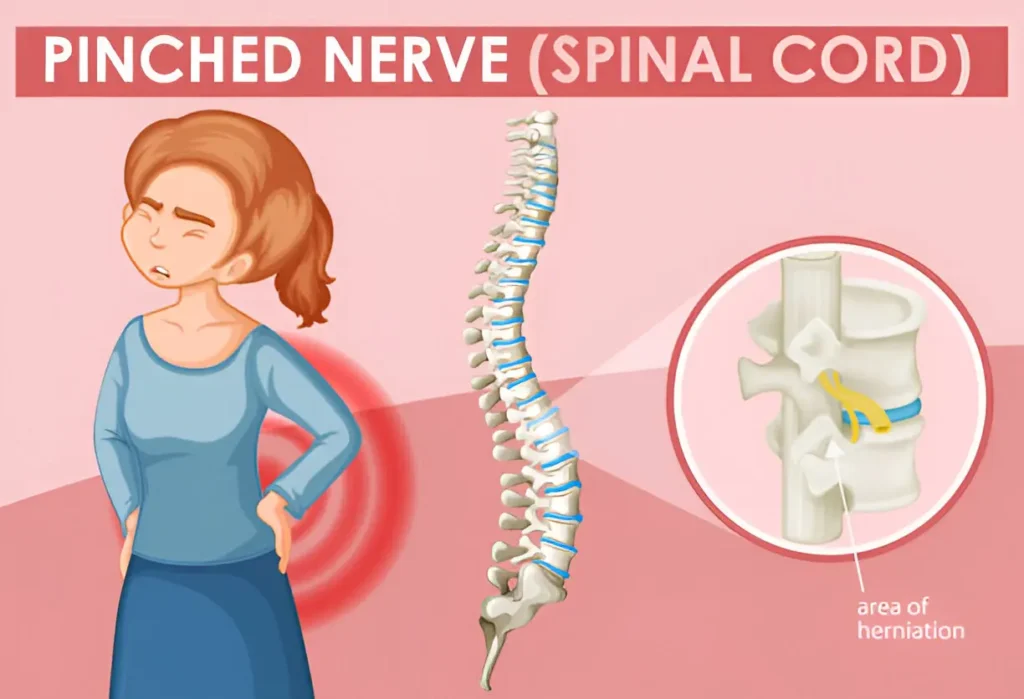What Causes a Pinched Nerve and Common Symptoms
Pinched nerves are common and can develop slowly or suddenly, disrupting routine activities. They occur when too much pressure is applied to a nerve by surrounding tissues, such as bones, cartilage, muscles, or tendons. Risk factors include repetitive motions, athletic injuries, car accidents, poor posture, and inadequate prenatal care, which can also contribute to pinched nerves due to improper weight distribution or swelling. Office workers and manual laborers face risks, as repetitive typing can strain wrists and improper lifting may compress nerves in the lower back. Genetics, arthritis, obesity, and pregnancy may also increase risk. Pain typically radiates along the affected nerve path, with symptoms ranging from sharp pain to tingling sensations. Prompt assessment is crucial for achieving optimal recovery outcomes.
Why Timely Treatment Is Crucial for Nerve Health
Pinched nerves can cause chronic damage, leading to muscle weakness, pain, and numbness. Untreated nerves can cause permanent scarring, leading to long-term complications. Early-stage nerve injuries often respond well to conservative treatment. Early-stage interventions, such as stretching, ergonomic adjustments, and professional therapies, can help minimize inflammation and promote nerve healing and recovery. Quick intervention, combined with evidence-based recommendations, increases the likelihood of a full recovery and may reduce the need for invasive procedures in the future.
Types of Pinched Nerve Treatments Available
Pinched nerves typically require conservative treatment, with non-invasive methods like rest, modified activity, and anti-inflammatory medications used to reduce swelling and pain. Physical therapy, including exercises to restore flexibility and correct musculoskeletal imbalances, is often the cornerstone of recovery. If these methods don’t provide relief, corticosteroid injections may be suggested. Advanced imaging or diagnostic tests may help clarify the cause. Surgery may be necessary if conservative measures fail or severe neurological deficits are detected. Long-term recovery plans may involve ongoing rehabilitation, personalized exercise routines, and continued support to minimize the risk of recurrence.
How to Start Your Search for a Pinched Nerve Specialist
To find an experienced specialist for nerve conditions, research their qualifications and experience. Consider specialists like chiropractors, physical therapists, neurologists, and orthopedic physicians. A reliable professional should have the appropriate state license, board certification, and ongoing education. Confirm if the specialist treats similar cases, especially if your pinched nerve is complex or persistent. Professional memberships, published research, and faculty positions indicate active engagement in their specialty, indicating better outcomes and up-to-date knowledge of the latest therapies and techniques.
Evaluating Treatment Approaches for Effectiveness
Pinched nerve care plans should be flexible, evidence-based, and tailored to individual health goals and daily reality. These plans should include manual therapy, individualized exercise routines, ergonomic strategies, and, in some cases, medications. Effective programs track progress, encourage patient input, and adapt therapies as needed. Providers should discuss lifestyle adjustments, at-home exercises, and workplace modifications to speed healing and prevent recurrence. Measures of success should include pain-free range of motion and follow-up visits to gauge changes in numbness and strength. An effective care plan should reflect personal schedules, priorities, and activities.
Tips for a Smoother Recovery After Pinched Nerve Treatment
Pinched nerve recovery requires implementing at-home strategies and making informed daily choices. Start by promoting smart posture, taking breaks, stretching, and using supportive gear. Your specialist may prescribe physical therapy exercises to protect neural tissue and improve resilience. Maintaining follow-up visits enables care teams to reassess progress and keep you on track. Staying engaged and proactive about your health is the best investment in long-term comfort and nervous system resilience.
Also Read-Maximizing Patient Satisfaction with Healthcare Call Centers


